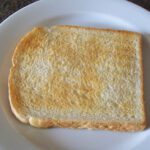An innovative orthopaedic screw that could help improve patient outcomes after complex trauma surgery has been named as the overall winner in the 2018 Curtinnovation Awards.
The REX Orthopaedic Screw, developed by a team of researchers and surgeons from Curtin University and St John of God Subiaco Hospital, is a removable, expandable titanium screw that aims to assist in complex surgeries to treat hip fractures and other bone injuries, as well as spinal conditions.
 The Curtinnovation Awards, which recognise winners across the faculties of Science and Engineering, Health Sciences, Humanities, Business and Law, as well as Teaching and Learning, celebrate the University’s efforts to turn research outcomes into products that have everyday relevance and impact.
The Curtinnovation Awards, which recognise winners across the faculties of Science and Engineering, Health Sciences, Humanities, Business and Law, as well as Teaching and Learning, celebrate the University’s efforts to turn research outcomes into products that have everyday relevance and impact.
Curtin University Deputy Vice-Chancellor Research Professor Chris Moran congratulated all winners, adding the awards showcased the diversity of research projects being undertaken at the University.
“The Curtinnovation Awards celebrate the high calibre of innovative research projects that are being developed into commercially successful, real-life products that have the potential to benefit people in Australia and around the world,” Professor Moran said.
“The overall winning research project is an expandable bone screw that has stronger attachment than a traditional screw and has potential benefits for complex surgeries, including the treatment of hip fractures in patients with poor bone quality, allowing for better rehabilitation and mobility.”
Professor Moran said the other award winners demonstrated how leading research can make a real difference to people’s lives.
“The other successful research projects include an improved pharmaceutical drug formulation system to deliver drugs to patients with colon and lung diseases; a new test that could help improve meat processing safety on a global scale; and a software tool for farmers that is helping simplify the highly complex economics of grain harvesting and distribution,” Professor Moran said.
“Two education research projects that are working to improve the way the next generation learn have also been recognised at the Curtinnovation Awards. These included a sustainability program for schools that is helping reduce waste, water and energy consumption while cutting average utility costs by $30 per student every year, and a new interactive way of encouraging online learning through problem solving in teams.”
For further information on the Curtinnovation Awards, visit: https://research.curtin.edu.au/industry-partners/commercialisation/
The winners from the 2018 Curtinnovation Awards include:
Overall winner
Project: REX Orthopaedic Screw
Team: Curtin’s Dr Matthew Oldakowski, Mrs Intan Oldakowska, Professor Garry Allison, Professor Brett Kirk, Orthopaedic Surgeon Professor Philip Hardcastle, Orthopaedic Surgeon Professor Markus Kuster, Professor Gabriel Lee (St John of God Subiaco Hospital), Perth entrepreneur Mr Ian Brown
Description: As many as one in 10 hip surgery patients end up back in the operating theatre due to problems with orthopaedic screws working loose from the bone they are holding in place. A team of researchers and surgeons from Curtin University and St John of God Subiaco Hospital developed a removable, expandable screw, suited to hip fractures in patients with poor bone quality, allowing for better rehabilitation and mobility, and reducing the likelihood of losing independence.
Science and Engineering category
Project: ARISE Technology for Drug Formulation
Team: Professor Neil Foster
Description: Professor Foster, from Curtin’s WA School of Mines: Minerals, Energy and Chemical Engineering, is developing an improved pharmaceutical drug formulation system to help deliver drugs to patients with colon and lung diseases. The innovation, known as ARISE (Atomised Rapid Injection for Solvent Extraction), reengineers active pharmaceutical ingredients into particles no bigger than a few micrometres, which allows them to be more easily absorbed into the body’s bloodstream compared to conventional pharmaceutical drugs.
Health Sciences category
Project: Detecting Harmful Microbes in the Meat Industry
Team: Curtin’s Dr Joshua Ravensdale, Professor Gary Dykes, Dr Ranil Coorey
Description: Researchers from Curtin University have devised a test that is potentially faster and cheaper in screening for specific microbes on surfaces, which could improve meat processing safety globally. The technology uses probes to find bacteria such as Salmonella in a process that does not need specialist laboratory equipment and gives a result within minutes and at the point of sample collection.
Business and Law category
Project: Harvest Optimisation through On-farm Grain Storage
Team: Curtin’s Professor Ryan Loxton, Dr Elham Mardaneh, Mr Luke Gamble (Global Grain Handling Solutions), Shiv Meka
Description: Global Grain Handling Solutions is developing a low-cost and flexible alternative for on-farm grain storage, sealable tarpaulin ‘teepees’, which can be hired and moved every season. In conjunction with this innovation, a Curtin University research team has created a software tool for farmers that is helping simplify the highly complex economics of grain harvesting and distribution.
Humanities category
Project: Curtin Challenge
Team: Curtin’s Professor David Gibson, Dr Mel Henry
Description: Curtin Challenge is a novel interactive way of learning online through problem solving in teams. It improves engagement with learners and includes analytics that can be used as evidence of learning. More than 25,000 Curtin University students have used the system to learn in the areas of leadership, sustainability and career planning and the solution is now being extended to other institutions
Teaching and Learning category
Project: The ClimateClever Initiative
Team: Dr Vanessa Rauland
Description: Dr Rauland from the School of Design and Built Environment has developed a sustainability program for schools to help reduce waste and minimise water and energy consumption, while delivering hands-on sustainability education to students. The program has been rolled out to 30 schools in WA, which enjoy average utility savings of $30 per student every year.


